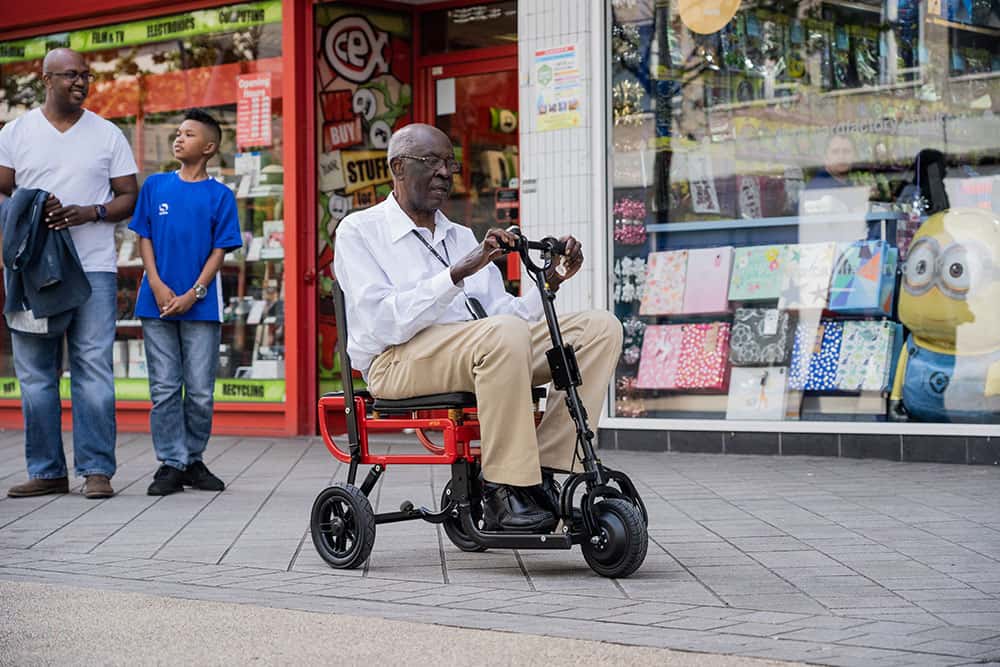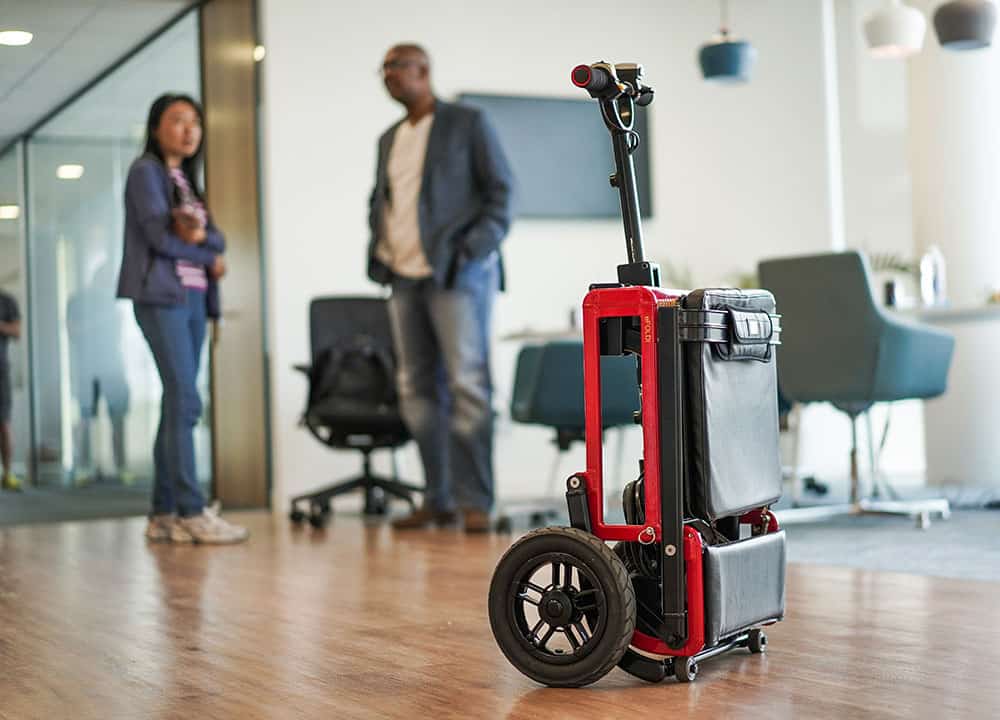“World’s lightest folding mobility scooter” looks to change perceptions of traditional mobility vehicles

SunTech has launched the “world’s lightest folding mobility scooter” that can be transported on planes and in cars: the eFOLDI Lite.
Winner of the British Invention of the Year, eFOLDi Lite is much smaller, lighter and easier to use than previous eFOLDi versions, weighing just 15kg. Users can unfold the scooter in seconds by opening one latch, releasing a pin and rolling it out.
The eFOLDI Lite can also fold into a small, portable suitcase shape, making it easy to transport while on the go.
In addition, one of eFOLDI Lite’s main features is that it does not look like a traditional mobility aid, removing the often clinical and stigmatising appearance of mobility scooters and giving users the feeling that they are travelling on something attractive.

“You won’t find anything else like eFOLDi Lite on the market right now. eFOLDi Lite is super lightweight at only 15kg and is the perfect travel and mobility companion,” said eFOLDi Creator Sumi Wang. “For those individuals with restricted mobility, eFOLDi Lite has a huge advantage as it looks nothing like a disability tool.”
The innovative device can carry loads of up to 120kg and can travel up to 22km on a single charge, with a maximum speed of 6km/h.
The battery and rear wheels can be quickly removed to reduce the weight down further to 12kg. The eFOLDI Lite can also climb a 1 in 5 gradient, and has the ability to tackle some of the roughest terrain, enabling individuals to travel outdoors on the scooter. It will also stop quickly and hold securely on any slope.
eFOLDi began as a solution to a problem and was designed in tandem by Sumi and her father – renowned Chinese engineer Jianmin Wang. In 2012, Jianmin broke his leg and was unable to get around. This paved the way for the creation of eFOLDi as an alternative method of transport to get around and the mobility scooter was born.

